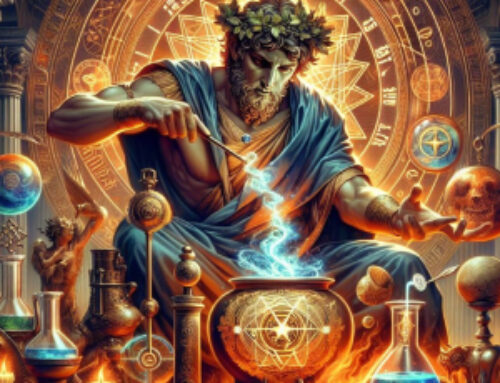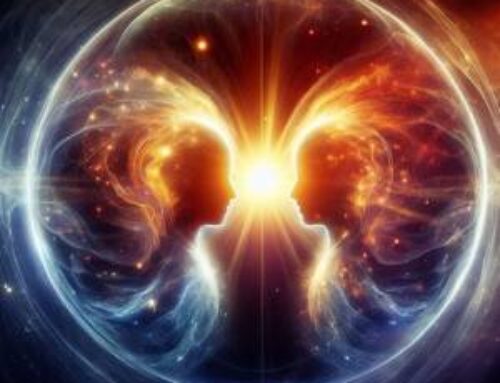Contents
Conspiracy theories? A conspiracy theory describes a current or past event as a conspiracy. A group of people is suspected of pursuing a secret goal to the detriment of third parties. This can be either lawful or unlawful. In most cases, the value-free term “conspiracy theory” is used in the media in a deliberately defamatory way, just like the originally value-free term “sect”.
In most cases, alleged facts are cited to support the conspiracy theory, although these cannot be proven. Or correct figures, data and facts are used, but incorrect conclusions are drawn from them. An unclear factual situation allows a conspiracy theory to be creatively woven further and, depending on its popularity, becomes a growing foundation for a popular public opinion.

Decoding the Mythos of Conspiracy Theories
The Esoteric Dimensions of Conspiratorial Narratives
For a conspiracy theory to spread, a certain number of believers are needed to support the theory. Nowadays, conspiracy theories can spread rapidly thanks to the internet and reach a broad population. Conspiracy theories are particularly popular with people who experience insecurity, mistrust, injustice or a feeling of loss of control. They form alliances and look for more followers in order to join forces to resist the suspected machinations.
There are countless conspiracy theories, e.g. about UFOs, aliens, world government, secret orders, Illuminati, Skull & Bones, false flag terror attacks, congresses, secret societies, Zionism, 9/11, corporations, secret services, John F. Kennedy’s assassination, etc.
Each theory is linked to a real situation, person, community, circumstance or similar, which makes it appear real. However, on closer examination, it should be noted that the connections rarely have verifiable sources or often there is even no solid evidence for many of these theories. An assumption or assertion is by no means proof of the authenticity of a conspiracy theory.
The Role of Secret Societies in Esoteric Traditions
Secret societies, enveloped in enigma and laden with esoteric lore, stand at the core of the Hermetic Academy’s teachings. These enclaves, often regarded merely as keepers of occult ceremonies, are recognized by the Academy as stewards of deep spiritual insights and venerable truths. The Academy imparts that these collectives wield metaphysical principles and covert energies that mold the moral, intellectual, and spiritual weave of humanity. Parallel to the interpretation of conspiracy theories, the scrutiny of secret societies yields essential revelations into the nuanced dynamics of power and knowledge that eclipse traditional historical accounts.
Unraveling the Influence of Hidden Orders
By probing the secretive and frequently misunderstood essence of these groups, disciples of the Hermetic Academy are invited to reveal the broader cosmic schema and to acknowledge the influence these assemblies have exerted on philosophical and spiritual discourse through the millennia. This inquiry is not merely scholarly in nature, but a profound odyssey into the veiled forces that have quietly steered human development.
The Dual Nature of Conspiracy Theories
Conspiracy theories can also be used specifically to control the behavior of certain groups of people, which can have an impact on a political election campaign, controlled propaganda or an information war, for example.
The term “conspiracy theorist” has negative connotations and stigmatizes people who spread an alternative view of a current situation that runs counter to the average accepted theory. It should be noted that many of today’s verified truths were initially considered conspiracy theories.
Historical Perspectives on Conspiracy Theories
An example of this is Copernicus’ globe theory, which was diametrically opposed to the religious “truth” and world view of a flat earth at the time. The fact that various people continued to study Copernicus’ “conspiracy theory” enabled it to be transformed into a new version of the truth.
It can therefore be concluded that conspiracy theories cannot generally be dismissed as false reports, but that they should be examined more closely in the event of increased public attention. After all, any activity by intelligence agencies, secret services, covert military operations, secret contracts, secret government talks, confidential price agreements, secret political congresses held in camera, etc. can also be classified as conspiracies under certain aspects.
The Risks of Condemning Conspiracy Theories
Such conspiracy theories should not be nipped in the bud, but should be investigated as far as possible. Ideally, a conspiracy theory can be verified or falsified through fact-based investigations, which are rarely possible, however, as these are covert machinations.
Otherwise, a conspiracy theory that meets with blind acceptance in society can create a wave of unreasonableness that, fueled by emotionally charged propaganda, can even lead to religious, political, cultural or racist persecution, violence, denunciation, defamation, agitation, etc. Wars and terrorism can serve as a reminder of this. Wars and terrorism can be taken as a warning here.
Conclusion
In conclusion, it can be summarized that a conspiracy theory is a theory like any other, which has not yet been proven or disproven. Scientific theories are also always a hypothesis and can be replaced by another scientific theory at any time.
The danger lies in the fact that a person, community, religion, medium or party etc. claims absolute truth for itself and persecutes or censors other people or opinions. This is always an attack on fundamental human rights.
“Believe those who seek the truth and doubt those who have found it.” (André Gide)
FAQ – Conspiracy Theories
- What is the Hermetic Academy’s perspective on conspiracy theories?
- The Hermetic Academy views conspiracy theories not just as speculative ideas about covert operations but as manifestations of a deeper, symbolic language that reflects societal undercurrents and hidden truths. They are seen as opportunities to understand the dynamics of power and knowledge that operate beyond the visible spectrum of everyday reality.
- How do conspiracy theories relate to Hermetic teachings?
- Conspiracy theories often contain elements of esoteric knowledge and hidden truths that are central to Hermetic teachings. By studying these theories, one can apply Hermetic principles of correspondence and symbolism to unravel broader metaphysical truths about the universe and human consciousness.
- Can studying conspiracy theories impact one’s spiritual growth?
- Yes, within the Hermetic Academy, studying such theories is considered a path to greater awareness. It helps practitioners discern truth from falsehood and fosters a nuanced understanding of how perceived realities are constructed, which is crucial for spiritual and intellectual advancement.
- What methods does the Hermetic Academy recommend for analyzing conspiracy theories?
- The Academy encourages a methodical approach that involves critical thinking, symbolic interpretation, and an application of Hermetic principles such as the Law of Correspondence, which posits that the microcosm reflects the macrocosm. This holistic approach ensures a balanced perspective that is both skeptical and open-minded.
- Where can one find reliable resources to study conspiracy theories from a Hermetic perspective?
- The Hermetic Academy offers a range of resources, including lectures, texts, and guided studies that provide insights into the esoteric aspects of conspiracy theories. These resources are designed to equip students with the tools necessary to decode symbolic meanings and understand the interplay between spiritual forces and earthly events.





